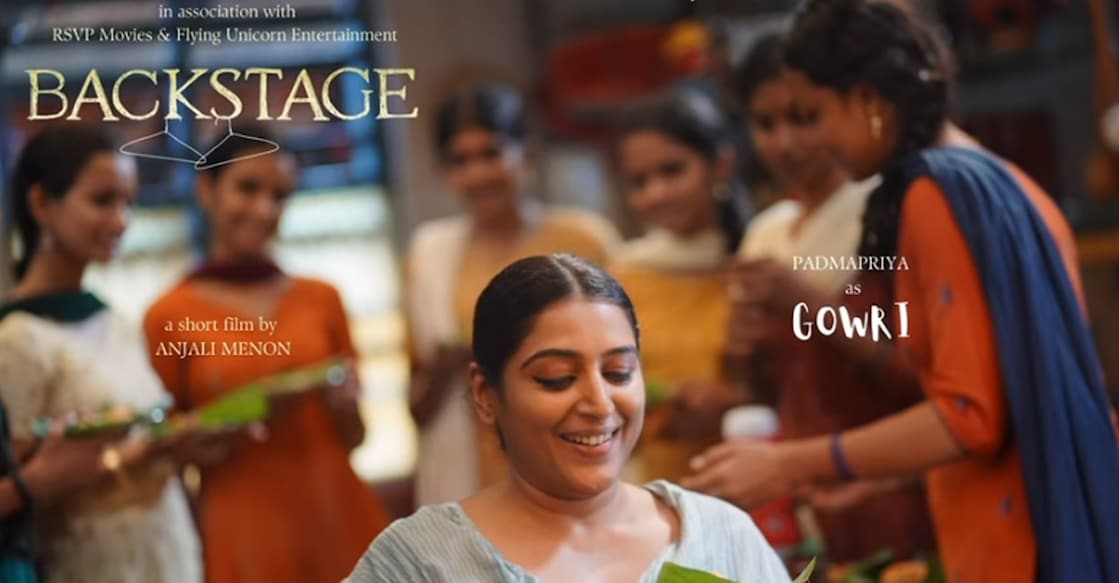'Backstage' review: Anjali Menon's short film has rhythm, good performances

Mail This Article
Relationships take centre stage in director Anjali Menon's films. In her latest work 'Backstage', a short film, part of the anthology 'Yuva Sapno Ka Safar', which is streaming on Waves, an OTT platform by Prasar Bharati, the filmmaker explores the bond between two women who are exemplary dancers but can't see eye to eye, as they grace an event at their alma mater.
We have seen Anjali explore friendship and sisterhood in 'Wonder Women', where pregnant women from diverse backgrounds come together as they prepare to embrace motherhood in different ways.
While 'Wonder Woman' tries to dissect women's willingness to adapt to new friendships, 'Backstage' explores the protagonists' animosity and insecurity. The central characters here behave as strangers when they meet again for a common programme, and Anjali has given them relatable dialogue to keep the audience engaged.
Padmapriya is the soul of 'Backstage' as she plays the successful dance teacher Gauri with conviction. She is fun, but is conservative and hilariously hypocritical as she maintains an image in front of her dance students.
Rima Kallingal, as Kanya, oozes attitude as she portrays an ambitious, yet egotistic celebrity who is bothered by Veni's presence. 'Backstage' is part of an eight-story anthology set in various cities in India that explores deceit, ego, betrayal, and human struggle. Anjali's film is rooted in Kerala and shows the clash of egos among performing artists.
'Backstage' is probably Anjali's most simple work to date as it follows only one theme, unlike 'Ustad Hotel (written by her) and directorial ventures 'Manjadikuru' and 'Bangalore Days', which are strung together by a myriad of emotions. Unlike the rest of the films in the anthology, this may come across as less adventurous. Yet it complements the bouquets of stories by offering a fresh and unique perspective on life behind the stage.


